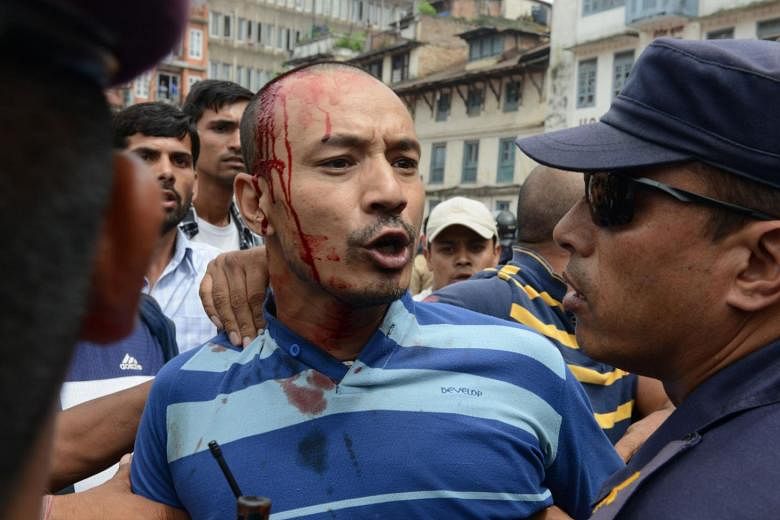KATHMANDU (AFP) - Dozens more people suffered injuries in Nepal on Tuesday during clashes between police and demonstrators campaigning for the country to be declared a Hindu state under the new constitution.
Lawmakers tabled a draft of the long-awaited national charter in parliament last month shortly after bickering parties struck a historic deal spurred by April's devastating earthquake that killed more than 8,800 people.
Tuesday's demonstrations were organised by the opposition pro-royalist Rastriya Prajatantra Party-Nepal (RPP-N), the fourth largest party in the constituent assembly, that wants Nepal to become a Hindu state under the charter.
Hundreds of protestors wielding RPP-N flags gathered outside venues hosting public discussions on the draft, which characterises Nepal as a secular republic.
"There was heavy police presence and they intervened in our peaceful demonstrations," said RPP-N assistant general secretary, Raja Ram Shrestha.
Shrestha told AFP at least 40 of their supporters, including party chairman Kamal Thapa, sustained injuries in a clash with security forces in Makwanpur district in central Nepal.
In Kathmandu, demonstrators burnt copies of the draft as lawmakers were about to begin discussions, also triggering violence.
"We have to ensure that discussion programmes proceed without disruption," Kathmandu police spokesman, Bishwa Pokharel, told AFP.
Clashes between police and hundreds of demonstrators also left dozens injured in central and southern Nepal on Monday when opposition lawmakers and their supporters - some hurling stones - expressed anger over the charter's lack of clarity about the creation of new provinces.
Opposition lawmakers have long pushed for new provinces to be established along lines that could favour historically marginalised communities, but other parties have attacked this model, arguing that it would threaten national unity.
The constitution was meant to complete a peace process begun in 2006 when Maoist rebels entered politics, ending a decade-long insurgency.
The peace deal initially ushered in sweeping changes, with lawmakers voting to end a 240-year-old Hindu monarchy and transform Nepal into a secular republic in 2008.
Since then, however, political infighting has confounded efforts to hammer out a draft charter, throwing parliament into disarray and crippling the economy.

